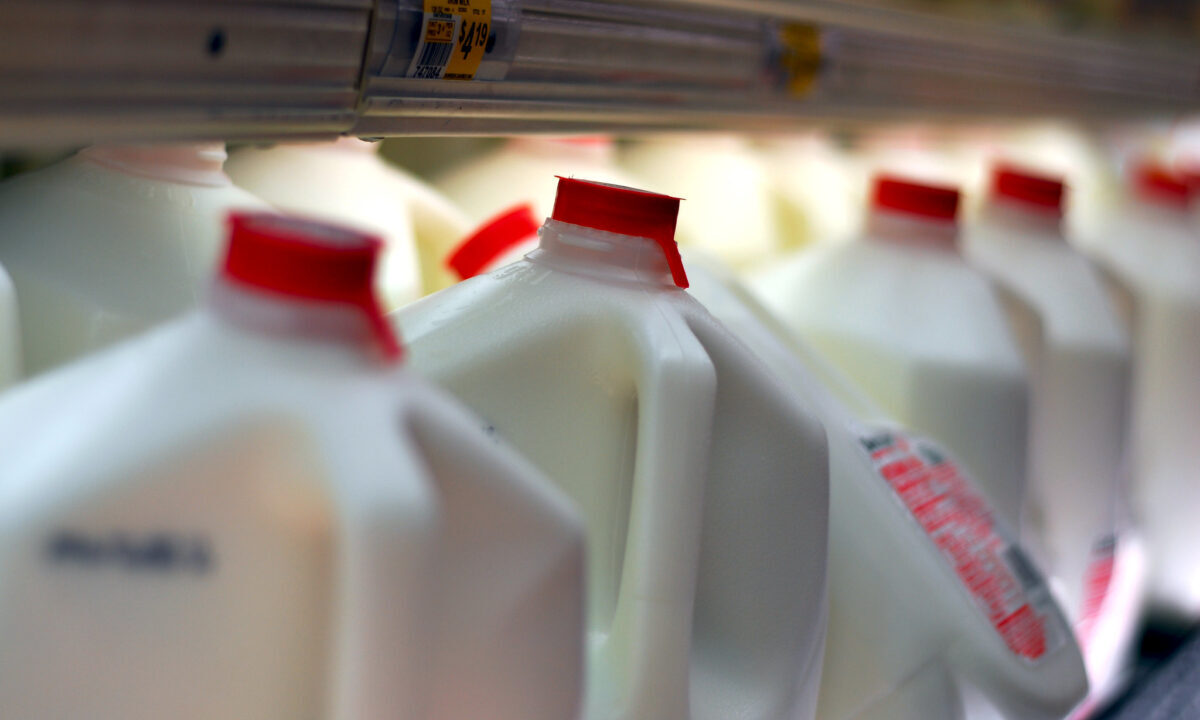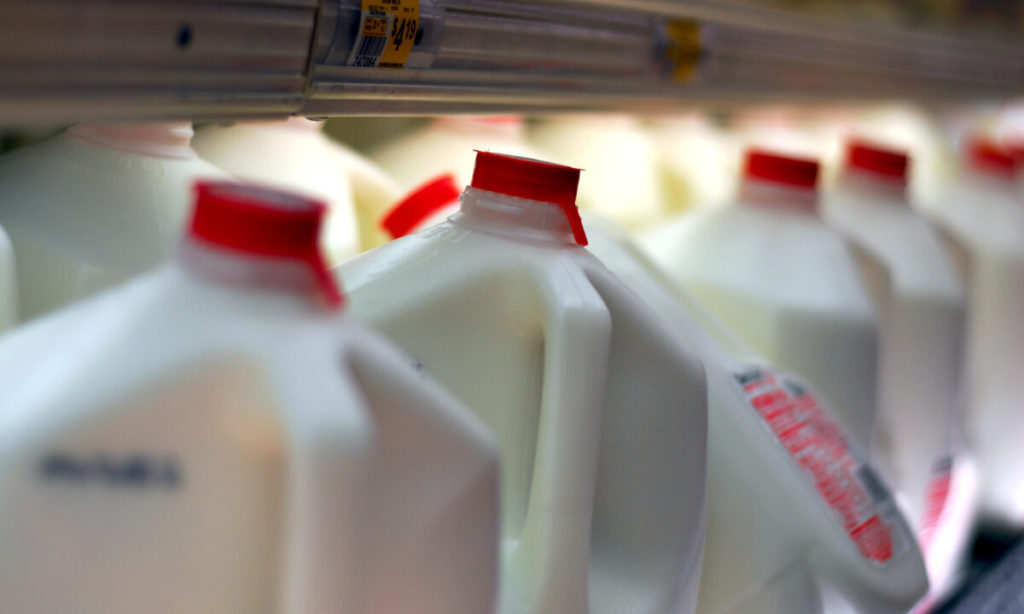Originally Authored at TheFederalist.com

Senate Democrats blocked an opportunity to vote this week on legislation allowing schools enrolled in the National School Lunch Program to serve whole milk.
On Thursday, Democrat Chairwoman of the Senate Agriculture Committee Debbie Stabenow refused to allow lawmakers a vote on the “Whole Milk For Healthy Kids Act,” which passed the House Wednesday. The legislation amends the Richard Russell National School Lunch Act to allow schools with federally subsidized lunch programs to offer whole milk alongside low-fat varieties.
“Access to healthy and nutritious whole milk should not be controversial,” said Kansas Republican Sen. Roger Marshall. “I was heartened to see the overwhelming bipartisan support for our bill last night in the House. With this momentum, we thought we had a real opportunity to come together and get a bipartisan win in the Senate to close out the year.”
It remains unclear why the Democrats blocked the measure. When reached for comment Friday, Stabenow’s office referred The Federalist to the senator’s brief remarks on the Senate floor Thursday night.
Stabenow cited incumbent dietary guidelines that broadly recommend a low-fat diet.
“Dairy is a very important part of a balanced meal, but one thing is clear,” Stabenow said, “and that is that school meal standards, currently based on dietary science, should continue to be based on dietary guidelines, not based on which individual food products that we support.”
“At this point in time, I do not believe it’s in the best interest to be able to move forward on this bill,” Stabenow finished.
Last year, the Food and Drug Administration (FDA) finally proposed an update to the agency’s definition of “health” to promote foods higher in saturated fat content, such as salmon, over ultra-processed cereals. The USDA, Stabenow mentioned, “is in the process right now [of] updating school meal[] standards.”
Americans, however, are slowly waking up to the devastation of the low-fat diet institutionalized by policymakers and major public health groups such as the American Heart Association (AHA), which endorsed the diet regimen more than 60 years ago. And they’re waking up with a hangover. About 6 in 10 American adults are suffering from at least one chronic disease, and 4 in 10 suffer from at least two, according to the Centers for Disease Control (CDC). Childhood obesity, meanwhile, has reached epidemic levels, with nearly 1 in 5 children being categorically obese.
While it might be a stretch to say the dietary guidelines caused the unprecedented outbreak of obesity and disease, the low-fat recommendations certainly haven’t prevented present health crises.
Nina Teicholz spent nearly a decade researching the science behind health authorities’ embrace of a low-fat diet and published her findings in her 2014 book, The Big Fat Surprise: Why Butter, Meat and Cheese Belong in a Healthy Diet.
“Almost nothing that we commonly believe today about fats generally and saturated fat in particular appears, upon close examination, to be accurate,” she wrote. Teicholz reviewed the history of dietary guidelines endorsing a low-fat diet and found personal biases and industry influence often contaminated the substantiating research.
“Ultimately, for every million more dollars spent by the AHA and [National Institutes of Health] trying to prove the diet-heart hypothesis, the harder it became for those groups to reverse course or entertain other ideas,” Teicholz wrote. “Although studies on the diet-heart hypothesis had a surprisingly high failure rate, these results had to be rationalized, minimized, and distorted, since the hypothesis itself had become a matter of institutionalized credibility.”
Healthy fats such as those found in beef and milk are essential for properly absorbing fat-soluble vitamins such as A, D, K, and E. “The vitamins found in fortified cereal,” Teicholz noted, “can only be well absorbed if consumed with milk that has not been stripped of its fat content.”
The U.S. Dietary Guidelines, however, as cited by Sen. Stabenow, still recommend Americans adhere to a low-fat diet.
Maybe Republicans should have slipped the milk measure into the National Defense Authorization Act (NDAA) just as they did with the reauthorization of warrantless surveillance. After all, adolescent malnutrition is a national security issue, and the epidemic of childhood obesity is leaving the armed forces strapped for manpower.
The legislation blocked by the Senate Agriculture chair this week is separate from the “Protecting School Milk Choices Act of 2023” proposed by House Republicans earlier this year to mandate sugary chocolate milk in schools. House GOP Conference Chair Elise Stefanik introduced the bill to counter proposed restrictions on flavored milk in middle and elementary schools put forward by the U.S. Department of Agriculture (USDA).
“This approach would reduce exposure to added sugars and would promote the more nutrient-dense choice of unflavored milk for young children when their tastes are being formed,” the agency proposal read.
More than 15 million American children received breakfast in school through the 2021-2022 academic year, according to the Food Research & Action Center (FRAC). The federal milk mandate requires schools to provide cow’s milk for every student on assistance.
Eleven House Republicans, however, including the chairman of the House Agriculture Committee, Glenn Thompson of Pennsylvania, co-sponsored legislation to require chocolate milk be made available. The average cup contains “up to 3 teaspoons” of added sugar.
[READ: Republicans In The Swamp Should Take On The Real Culture Wars, Not Biden’s ‘War On Chocolate Milk’]
